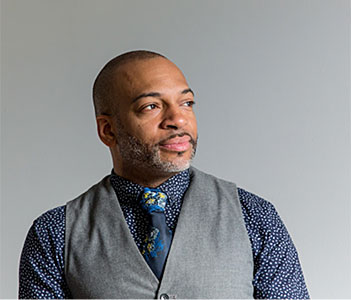
Sommelier spotlight: Christopher Sealy, Alo Food Group Toronto
I am excited to continue our new bi-weekly column where we’ll speak to Sommeliers all over the world to get a sense of where they are in this pandemic world. Next up is Christopher Sealy, Wine Director for the Alo food group in Toronto.
STEPHANIE ARTNER
December 2021
Photo: Christopher Sealy / credit: Nikki Leigh McKean
How does Covid impact your wine program?
Christopher: As we run mainly a wine pairing wine program, we are not finding enough diverse quantities of wine and wine regions of a quality that suits our program and when we do find a wine the quantity is not what we need. Our restaurant space, Alo - has reopened and it seems just as busy as it was pre-covid though with not enough wine to manage our wine pairing.
What are the biggest challenges and how can producers/importers/consumers support you better considering these issues?
Christopher: What I have noticed is that many clients are open to having good wine at any price, not just the most ‘expensive’. Meaning that some people are open to enjoying themselves, enjoying the wine, enjoying the re-opening, though there are a few with the same ‘high’ expectations and attitude who have no concept, but are simply part of the client demographic. What we have been discussing with importers (thereby with their producers) is perhaps organizing larger allocations of wine for our program(s). The worst feeling is scrambling. The agent is in the same predicament.
When you think of European cool climate regions like Alto Adige, Austria, and Germany, what would you be interested in tasting & learning more from/about?
Christopher: What I would be interested in tasting and learning is the range of vineyard management practices in cool climate regions in regards to biodynamics, organics versus larger-scale wineries. In particular, farming and soil management and how the vine reacts and produces a certain quality of grapes. In addition, I'd like to get a better understanding of native grapes in their environment with an eye to producers who are really pushing the envelope on quality. I want to get to the heart of the matter with wines and the history and future of a region. Questions and conversations that will challenge the drinker and the wine for a more dynamic experience.
Where do you see advantages for these regions in your restaurant?
Christopher: The opportunity to explore is greater with these wines, as only a few guests are experienced with these regions. We continually list Austrian Wines in all locations and still, people are largely ‘unfamiliar’ with them. The privilege of being a diner in this pandemic time, often linked to financial and racial privilege that few have, creates this barrier, which limits one to thinking Burgundy, Bordeaux and Super Tuscan are the ‘best wines’ in the world. There is a limited ‘perspective’, often by choice. 'These' wines, offer not only a range of flavors in all colors, but quality to price, and something new for the sommelier and the diner. You do pay for what you get in many instances, whereas in other regions, you may not know what you are paying for, other than ‘brand’.
What are you excited to pour in your guests' glasses next year?
Christopher: I expect to pour wines made with vision, integrity, and focus with regards to the environment (natural/biodynamic practices) and wines with clarity in communication from the ownership, winemaker, and the market representative. I do believe more questions need to be asked. And, we can pour more diverse wines from diverse producers from diverse regions.
Thanks, Christopher for your insightful interview. Next up is Andrea Morris, Beverage Director, Union Square Restaurant, New York City. Stay tuned!




